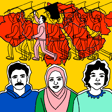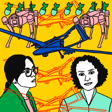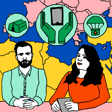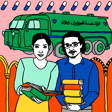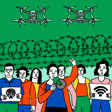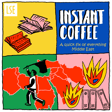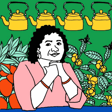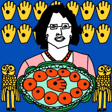
2.2 Yemen's Coffee Revolution with Faris Sheibani
On episode 2, Professor Madawi Al-Rasheed speaks with Faris Sheibani about the history and culture of coffee in Yemen, and how the drink can be used to connect with, and sustainably support, Yemeni farmers.
Faris is a British Yemeni social entrepreneur and founder of Qima Coffee, a Yemeni social enterprise that uses coffee as a vehicle for livelihood generation in Yemen.
Learn more about Qima Coffee here: https://www.qimacoffee.com/.
Madawi is a Visiting Professor at LSE Middle East Centre and Fellow of the British Academy. Her research interests include history and politics of the Middle East with special reference to Saudi Arabia and the Gulf, gender and state, religious transnational connections, and Islamist movements. Learn more about Madawi’s work here: https://www.lse.ac.uk/middle-east-centre/people/madawi-al-rasheed.
All artwork by Rawand Issa: www.instagram.com/rawand.issa_
